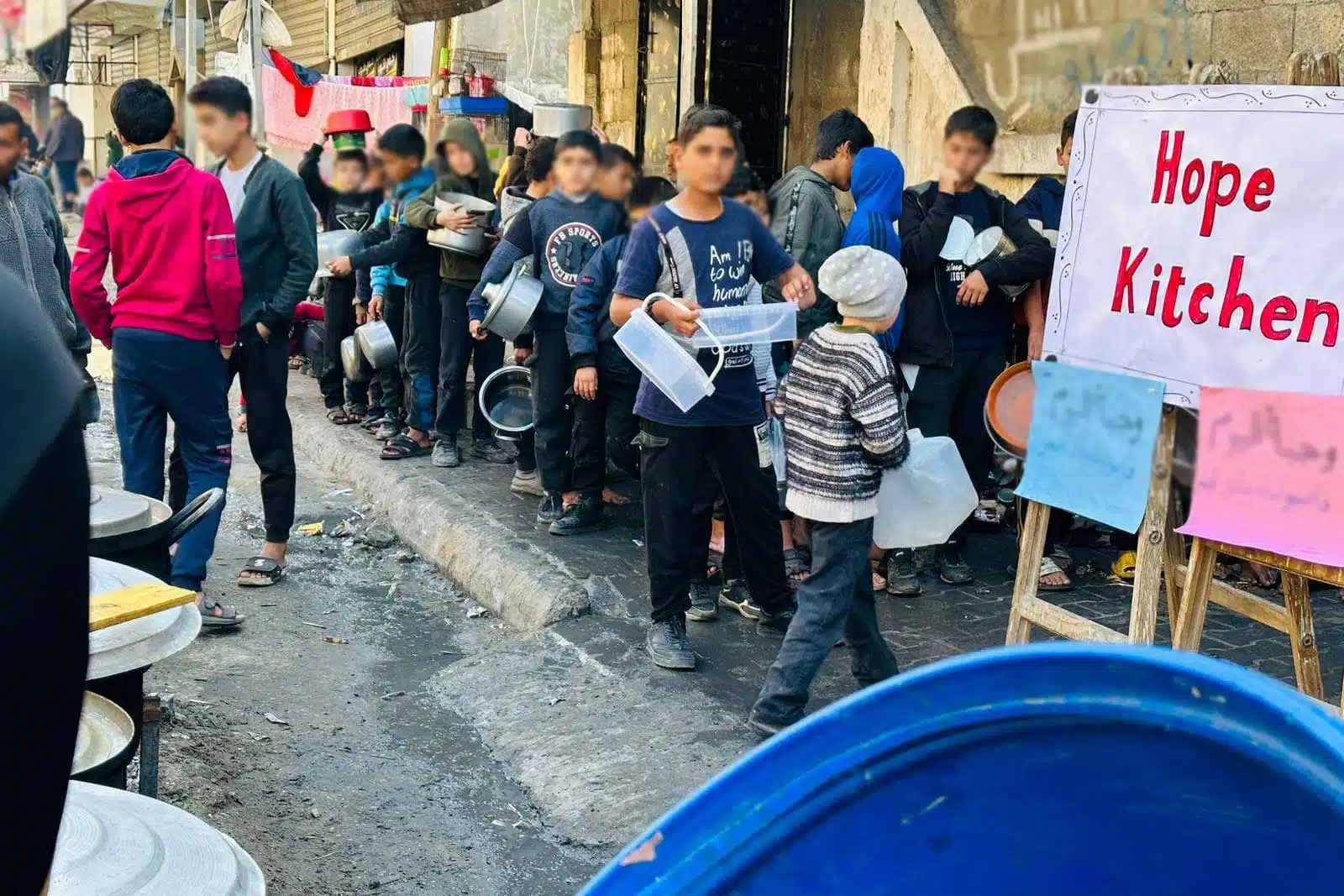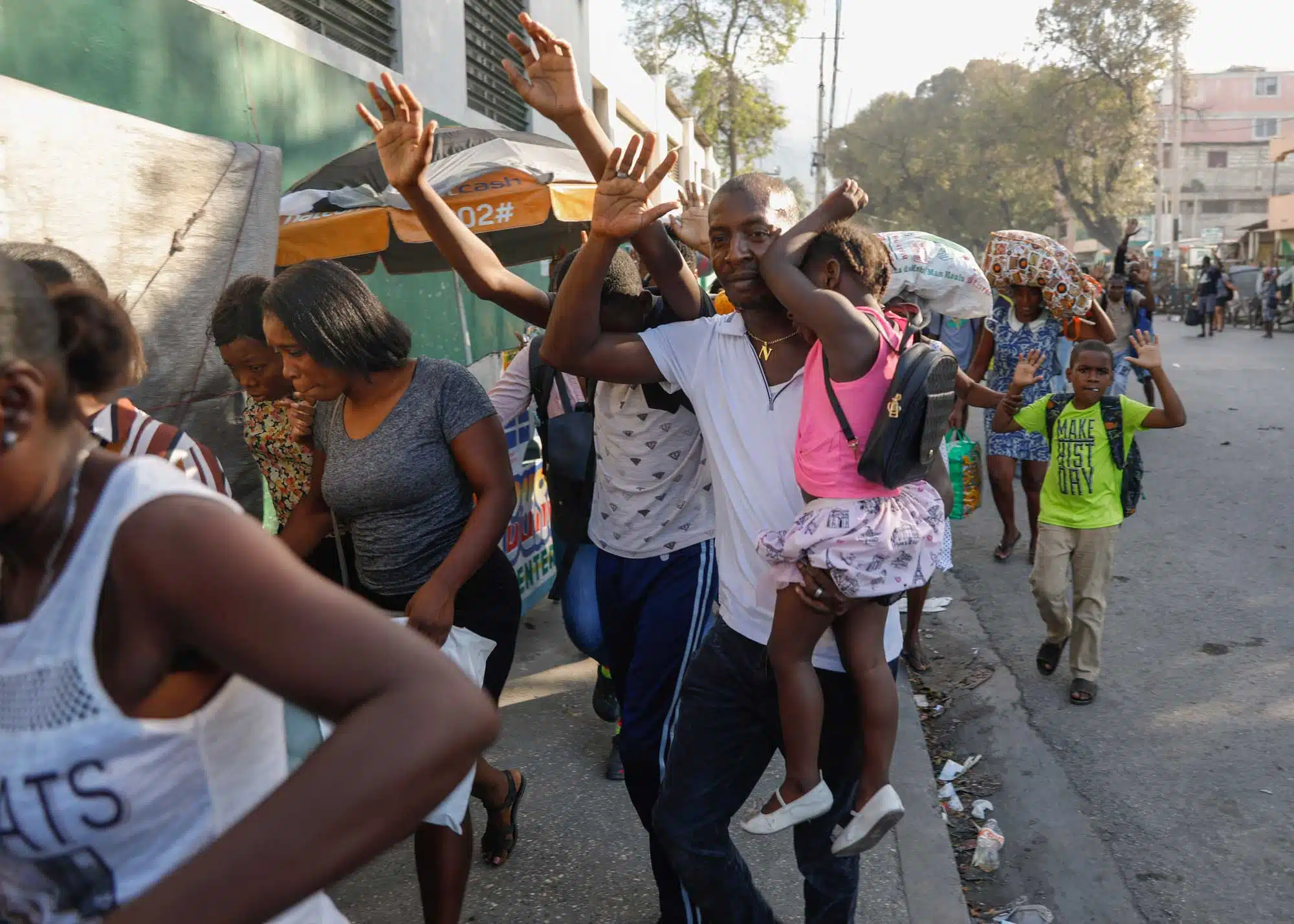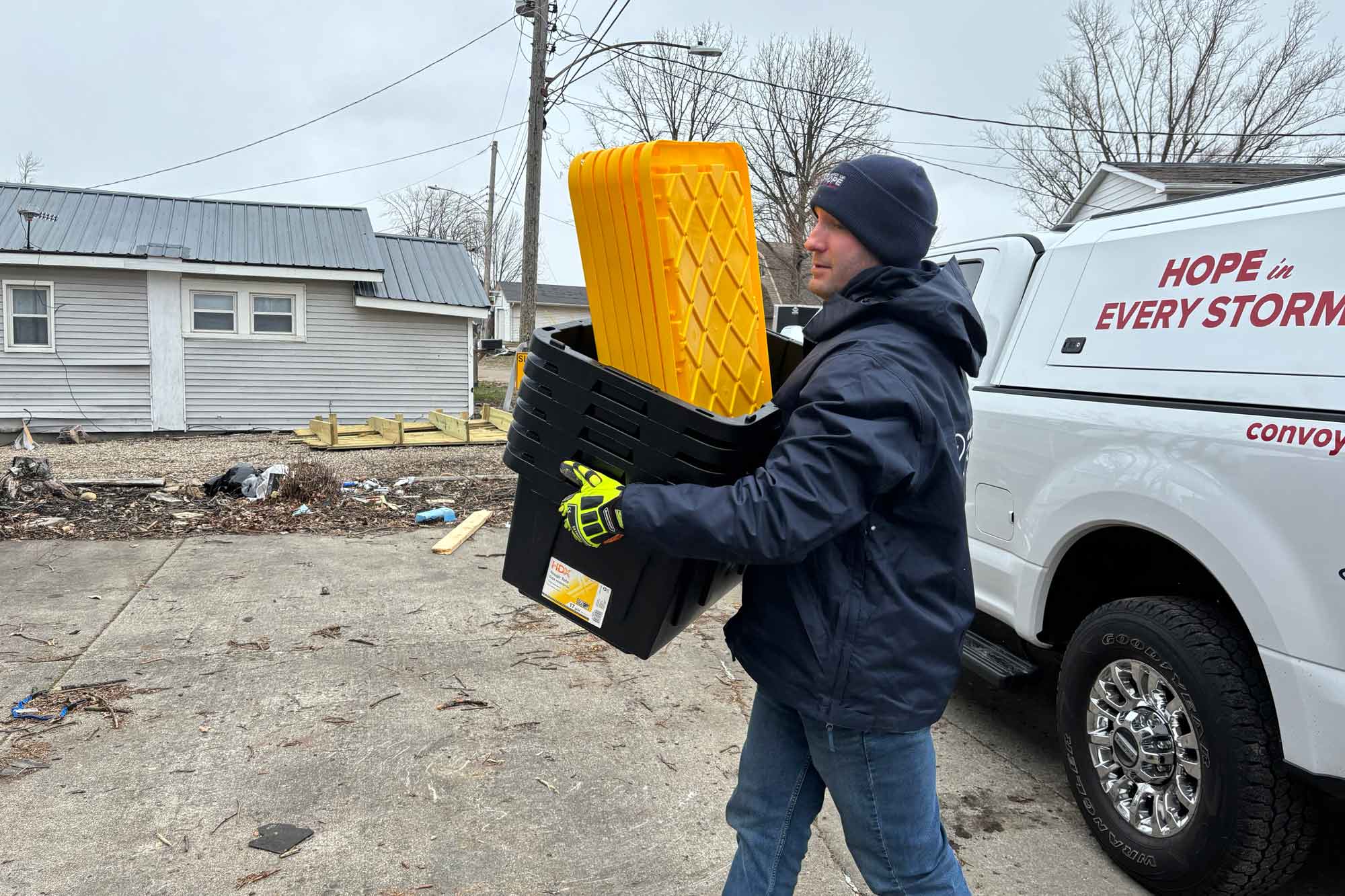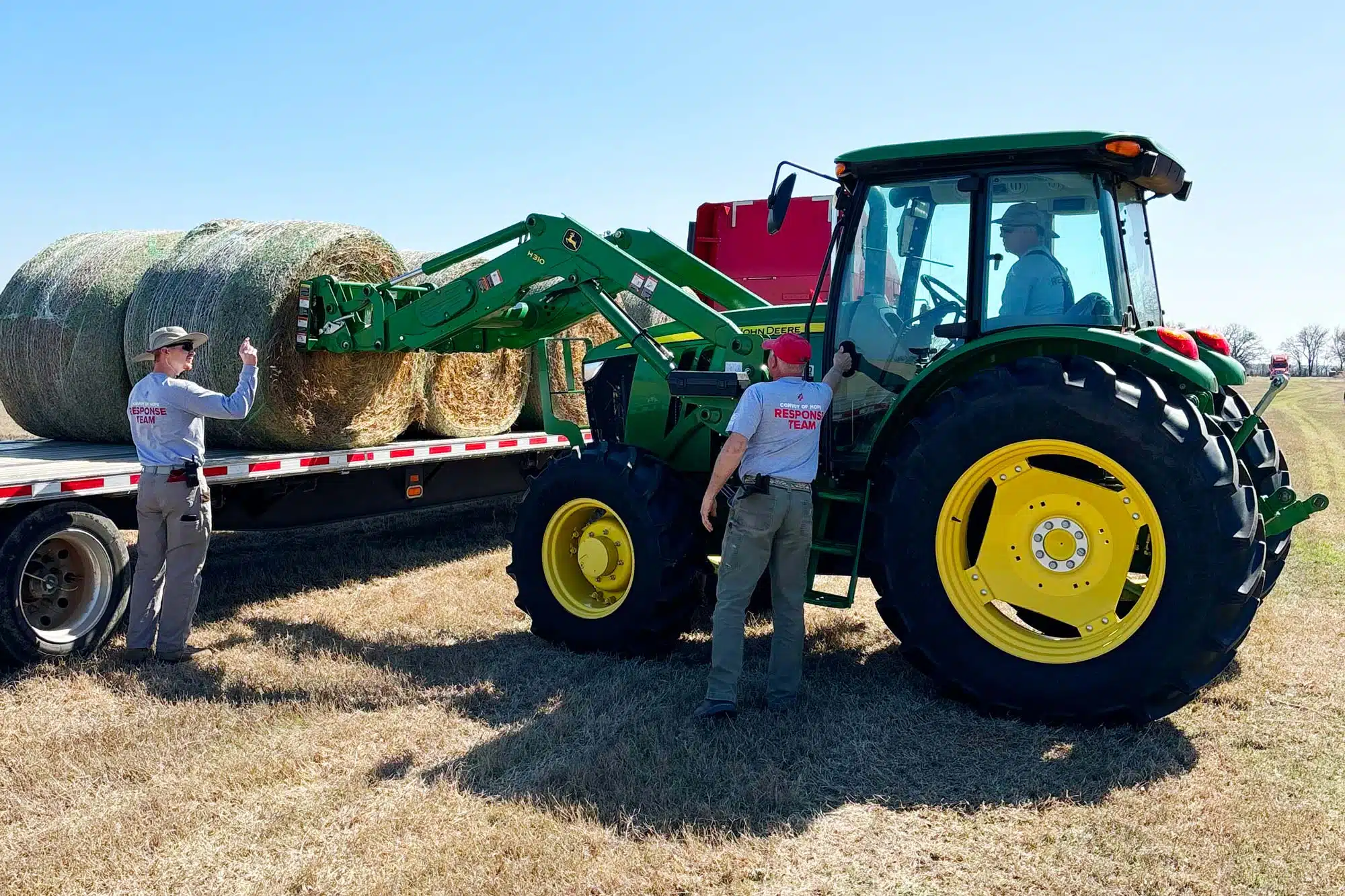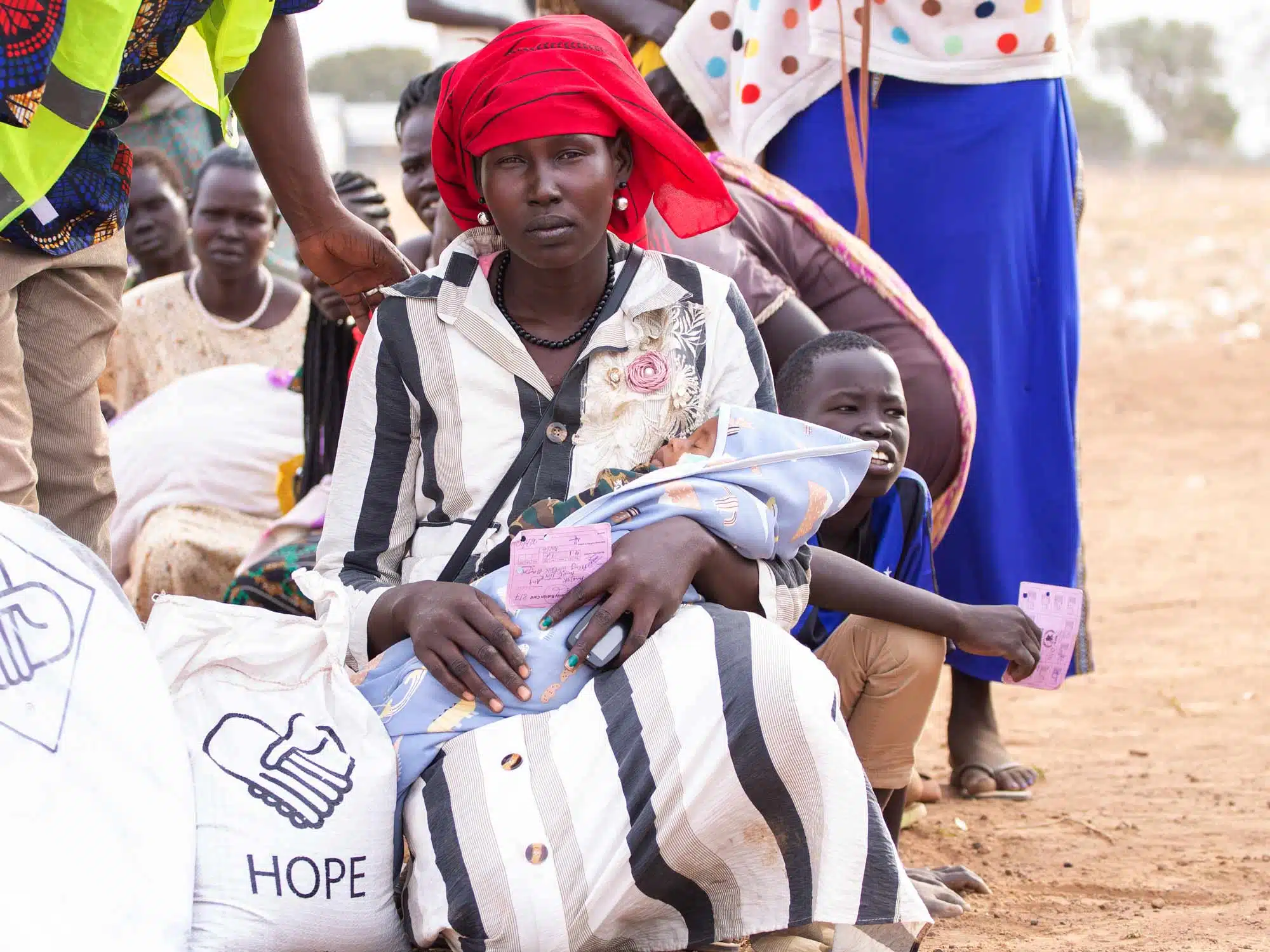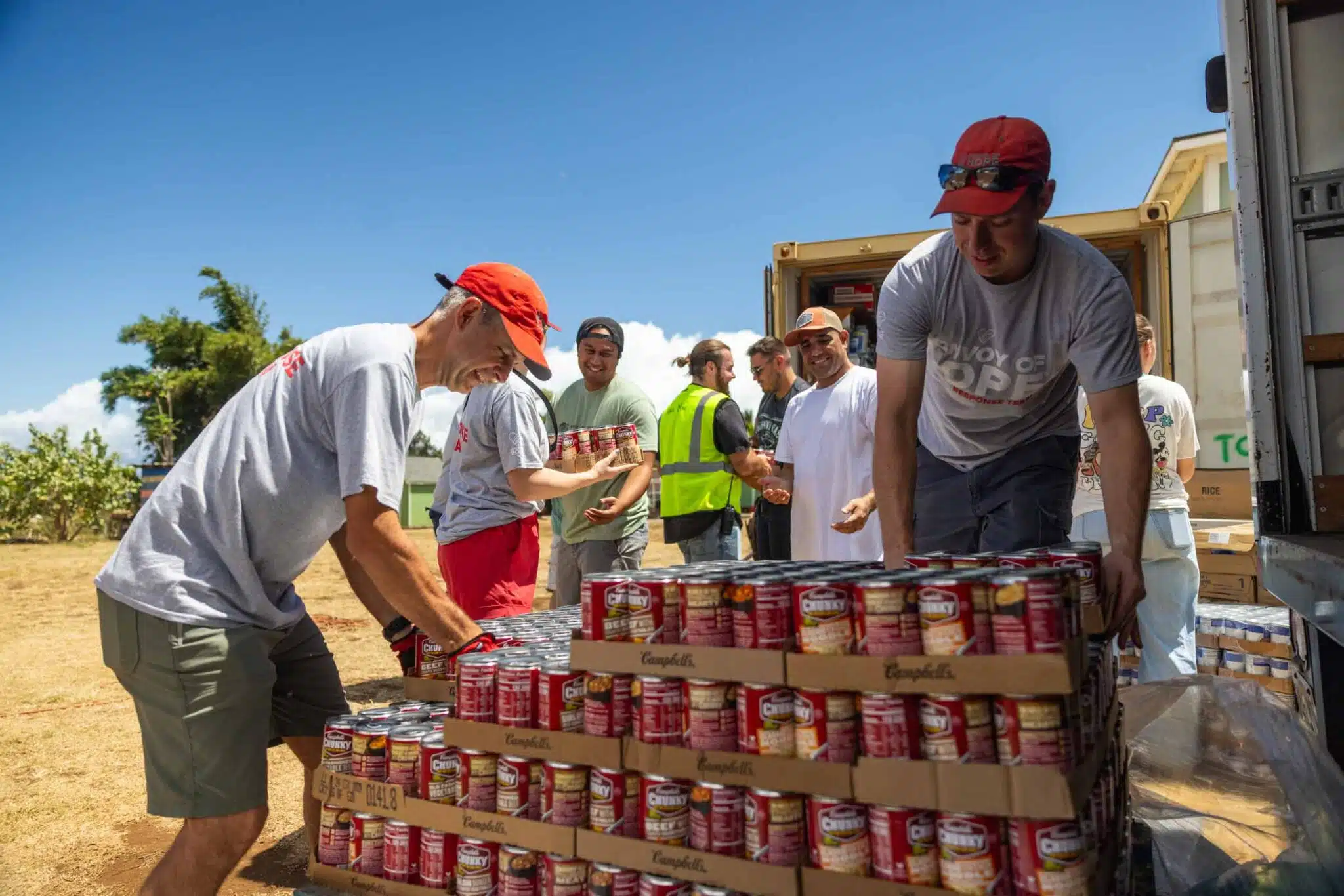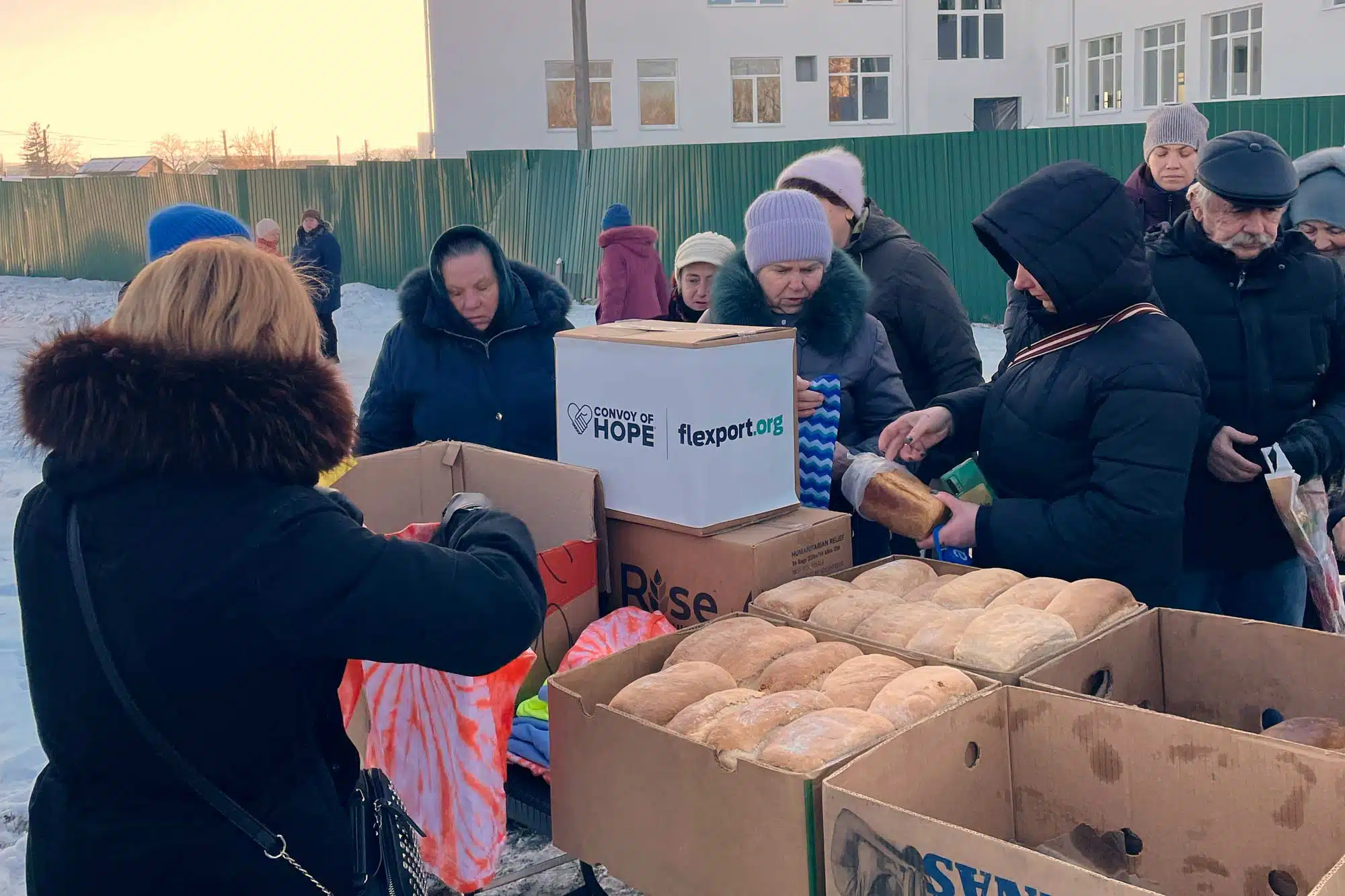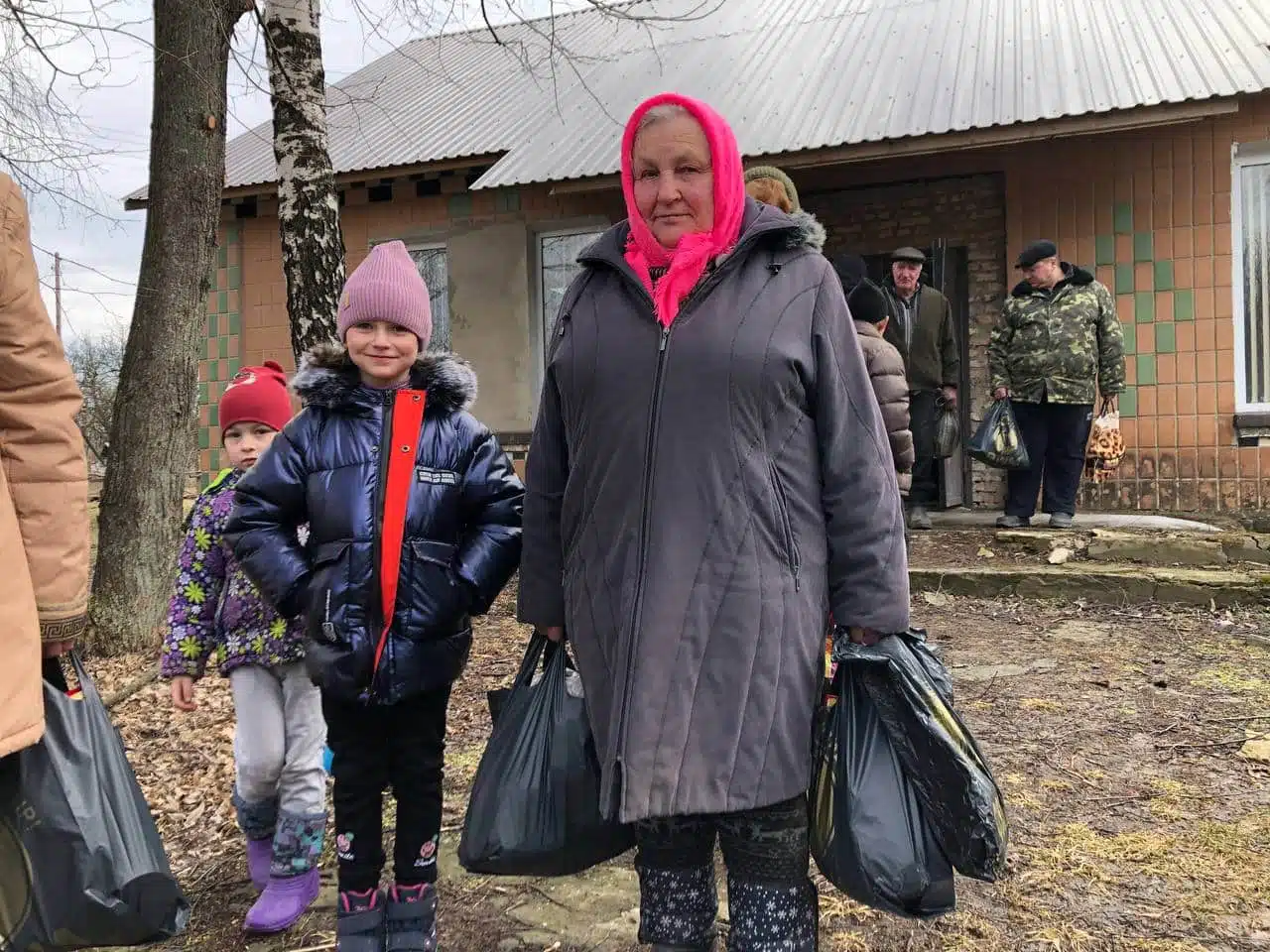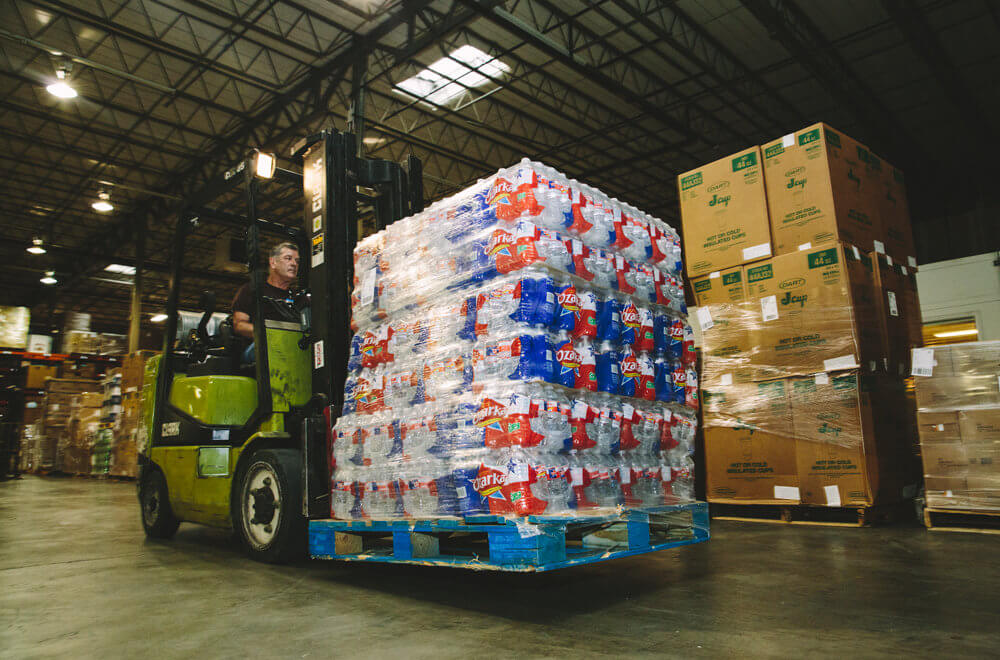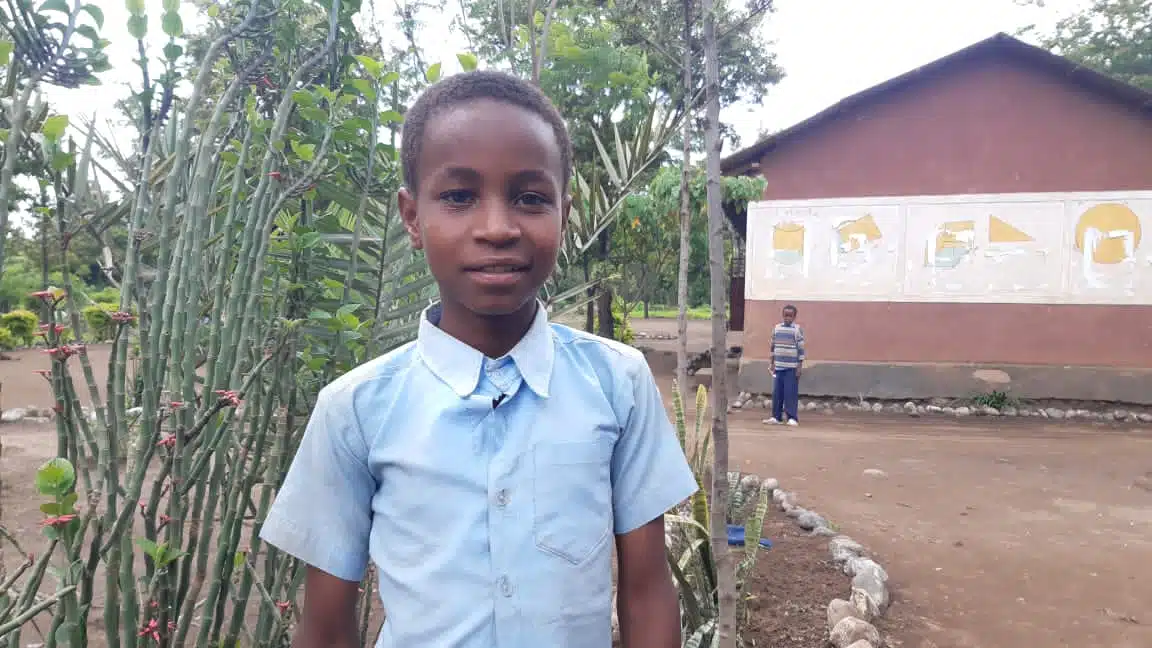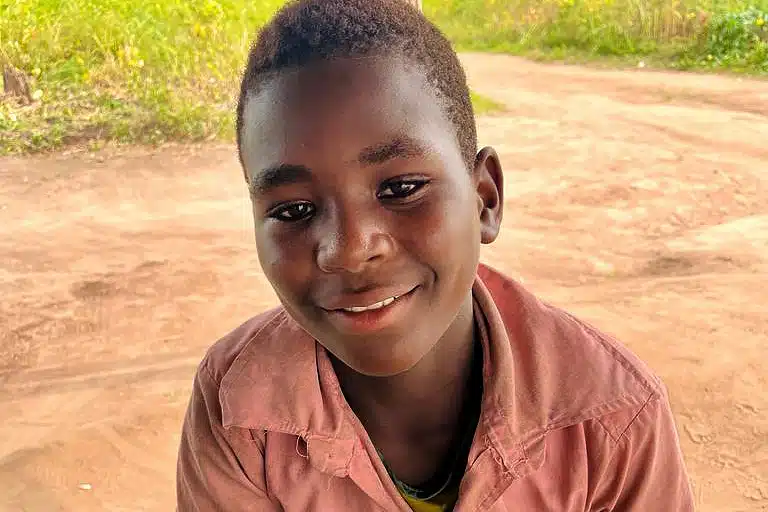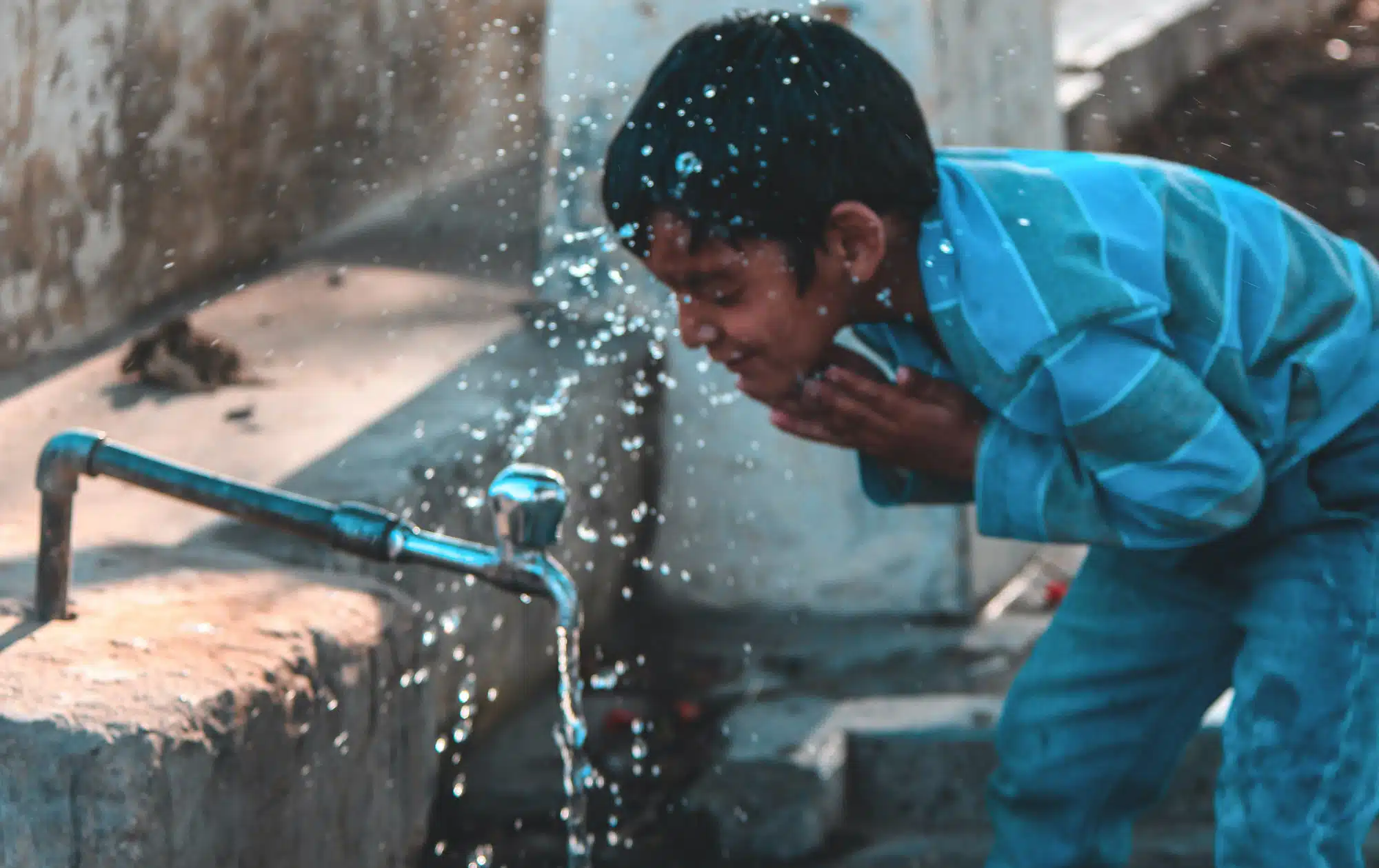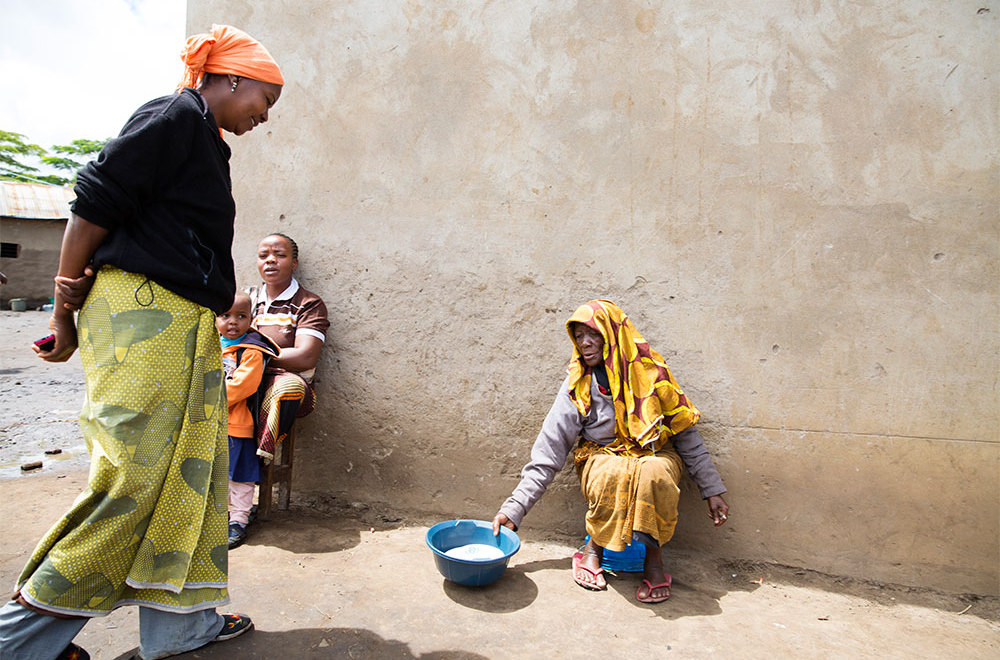
Mount Meru looms in the distance on the way to Sakina, Tanzania. The drive is not an easy one. The curvy roads are covered with rocks and marred with potholes that send passengers up and down in their seats of the rugged Ford Ranger. Along the dirt road, people sell produce, clothes, and other items. Young children in tattered clothes with no parents in sight wander around with no place to go. A glance is exchanged with a young boy who kicks rocks down the road. His big eyes prompt a friendly smile and wave. He looks back as he smiles from ear to ear, and goes on his way.
It is Tanzania’s rainy season. The sky is gloomy, but the white, puffy clouds stretch for miles. The truck stops outside the village. As the doors open, we are greeted with the scent of fresh air and the bold aroma of the trees and plants all around. The world seems to stop for just a moment, as all its beauty is breathed in.
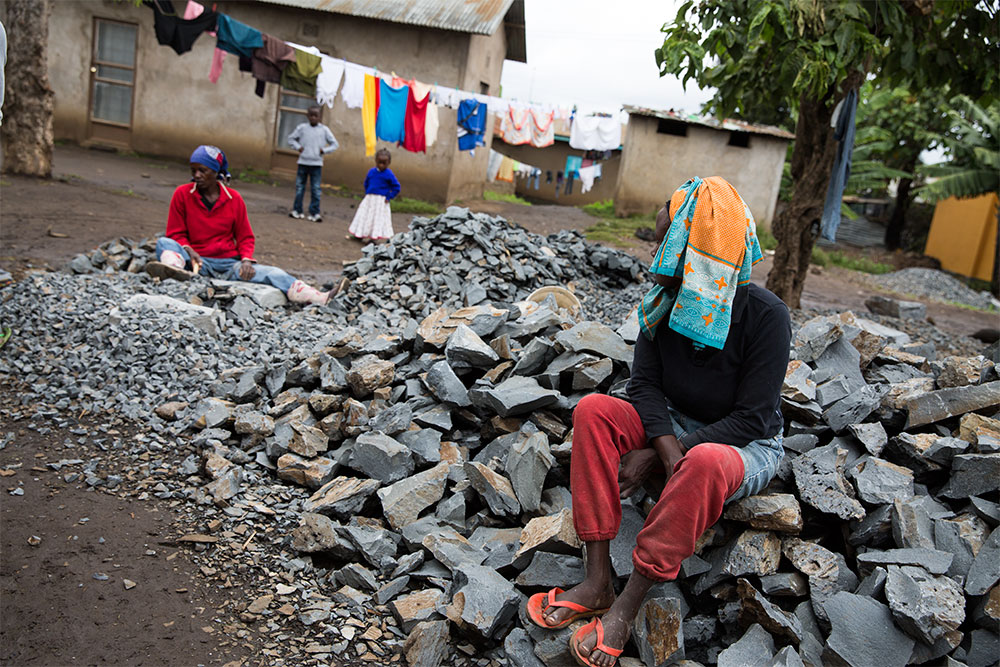
Chickens and goats freely walk around and there is a repetitive “clink” sound somewhere nearby. A woman named Vicki sells fresh produce near the front of the village. The stand is filled with red vine ripened tomatoes, crisp orange carrots, shiny eggplant and lettuce that is as green as the trees that surround us. In the U.S., supermarkets would envy this type of organic product, yet here it is in the middle of this Tanzanian village. Vicki beams as she shows off everything she can sell and delicately handles each item.
Her hands are calloused and dry, but she is dressed in a colorful khanga — a Swahili printed skirt — as she continues to explain her daily routine of selling produce to provide an income for her family. As we continue into the village, the “clink” sound gets louder and is difficult to ignore. The path leads past an old shanty made from stone and spare materials and the exposed doorway into the home reveals dirt floors.
Ten yards ahead, a woman sits on a massive pile of stone as she grips a small hammer. Her eyes stay on the stone and her strong, hardened hands steady before each swing. She begins with a large piece and splits it in two. She continues to hammer each piece until it breaks into several smaller pieces. Behind her, more women are spread across the entire village, almost in a pathway formation. Each sits on her own pile of stone as they meticulously hammer the large rocks into gravel.
Elizabeth is among half a dozen women who work multiple jobs to provide for their families and send their children to school. According to local staff, the tiny, sharp, gray stone that is hammered can be sold for construction and provide additional income for the women and their families.
The scale of work they complete with nothing but their hands and splintered hammers is remarkable. The stone work is extremely physically demanding and often results in injuries due to their lack of helmets, gloves, and eye wear.
‘It’s very hard work and the profit is low, but it’s better than nothing.’
—Sinyati, Women’s Empowerment participant
“We often pound our fingers or suffer from eye injuries,” Elizabeth says.
As the women work, shards of stone splinter off and fly in every direction. We are encouraged to stay back for our own safety, but the women stay in place. Years of hard work have made their eyes heavy and their bodies tired, but in their voices there is something unavoidable yet inspirational — determination.
“It’s very hard work and the profit is low,” Sinyati says as she looks across the piles of stone in front of her. “But it’s better than nothing.” Sinyati also works with Elizabeth and is the sole provider for her family.
These hard-working women are in their final days of this difficult labor because they have recently enrolled in Convoy of Hope’s Women’s Empowerment initiative. The initiative gives promise to pull these women out of poverty they have known their entire lives. They recently started a community garden where they can grow and harvest crops for additional income.
“When I look at the garden, I see a light in the near future where we can start our own business,” Sinyati says.
The group meets twice a week to discuss best practices for the money they have earned and saved, similar to women in the Tanzania village of Ilkiding’a. Elizabeth hopes the completion of the program will bring a newfound confidence and will inspire her daughter to live a better life as well.
“I wont feel bad anymore,” she says. “I will be able to provide for my family.”
Because of your support, women like Elizabeth have the resources they need. This allows them to feed their own children and to help others.
Building Bright Futures
On the verdant southeast slope of Kilimanjaro is a school where Convoy of Hope feeds children in Tanzania. Students here are dressed in their uniforms and cheer when lunch enters the room. They wait patiently, but their anticipation is evident as the empty bowls in front of them are filled with warm food. The smell of fresh cabbage, beans, and ugali (a local cornmeal dish) fills the air, and the children can’t help but smile.
Haika, 18, helps serve the food and smiles to herself. She has come a long way. Haika first came to the school at a young age after she lost both her parents to AIDS. She lived in unstable conditions with distant relatives and wasn’t able to get enough to eat. This caused her to become ill, miss school, and fail her classes.
Since Haika came to Mwika and enrolled in Convoy of Hope’s Children’s Feeding initiative, it has made a tremendous difference. She is back in school and doing well. Haika uses her personal experience as a step towards helping others. Her teachers have encouraged her to be victorious and she dreams of becoming a teacher herself someday.
“Before we had food, we didn’t feel well,” Haika recalls. “But the food has given me strength so now I can involve myself in many things.”
Along with your help, we regularly feed more than 1,700 children in Tanzania like Haika, which provides them the opportunity to follow their dreams and live victorious lives.
